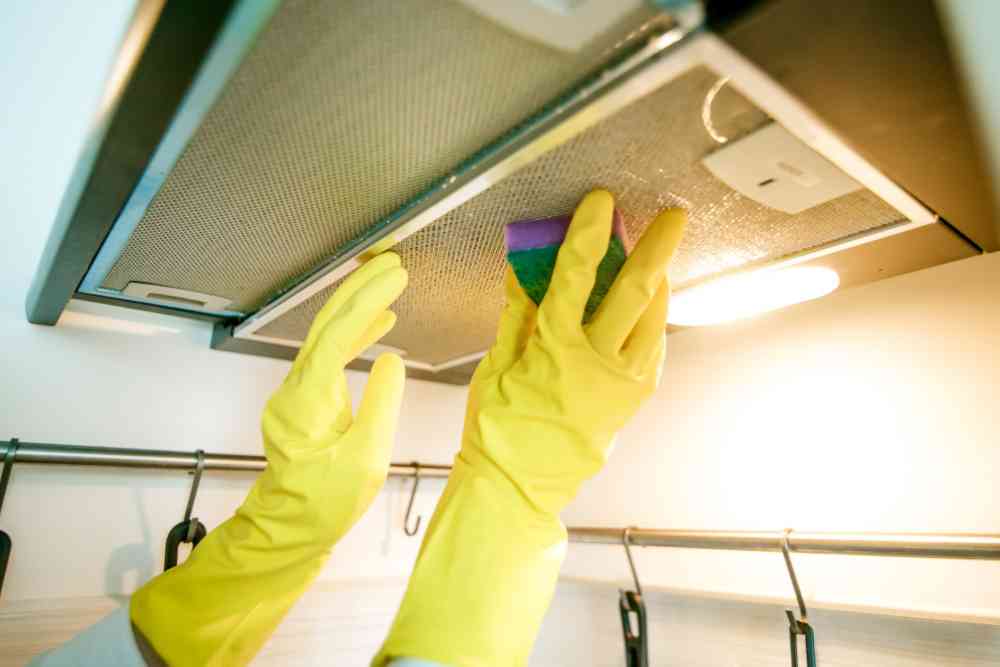Health Issues Linked to Dirty Kitchen Exhaust

Ontario-wide Kitchen Exhaust and Hood Cleaning – Best prices and service guaranteed.
Keeping a clean and hygienic kitchen is essential for maintaining good health. While most people focus on cleaning countertops, dishes, and utensils, one area that often gets overlooked is the kitchen exhaust system. Dirty kitchen exhausts can lead to a range of health issues, from respiratory problems to foodborne illnesses. In this article, we will explore the various health issues linked to dirty kitchen exhausts and the importance of regular cleaning and maintenance.
The Importance of Kitchen Exhaust Systems
Kitchen exhaust systems play a crucial role in maintaining a healthy indoor environment. They remove smoke, odors, grease, and other airborne contaminants generated during cooking. Without proper ventilation, these pollutants can accumulate in the kitchen, leading to poor air quality and potential health hazards.
Exhaust systems consist of a range hood, ductwork, and an exhaust fan. The range hood captures the pollutants, while the fan and ductwork expel them outside. However, over time, the exhaust system can become clogged with grease, dirt, and other debris, reducing its efficiency and posing health risks.
Ontario-wide Kitchen Exhaust and Hood Cleaning – Best prices and service guaranteed.
Respiratory Problems
One of the most significant health issues associated with dirty kitchen exhausts is respiratory problems. When the exhaust system is clogged, it fails to remove smoke, fumes, and other airborne particles effectively. These pollutants can irritate the respiratory system and cause or worsen conditions such as asthma, allergies, and chronic obstructive pulmonary disease (COPD).
Research has shown that exposure to cooking-related pollutants, such as particulate matter and volatile organic compounds (VOCs), can lead to respiratory symptoms and decreased lung function. A study conducted by the University of California, Berkeley found that children living in homes with unvented gas stoves and dirty kitchen exhausts had a higher risk of developing asthma symptoms.
Fire Hazards
Dirty kitchen exhausts can also pose a significant fire hazard. Grease buildup in the exhaust system can ignite easily, leading to a kitchen fire that can quickly spread to other parts of the house. According to the National Fire Protection Association (NFPA), cooking equipment is the leading cause of home fires, and a dirty kitchen exhaust system increases the risk.
Ontario-wide Kitchen Exhaust and Hood Cleaning – Best prices and service guaranteed.
Regular cleaning and maintenance of the kitchen exhaust system are essential to prevent grease buildup and reduce the risk of fire. Grease filters should be cleaned or replaced regularly, and the entire system should be inspected for any signs of damage or blockage.
Foodborne Illnesses
Dirty kitchen exhausts can also contribute to the spread of foodborne illnesses. When the exhaust system is clogged, it fails to remove cooking odors and airborne bacteria effectively. These bacteria can settle on surfaces, utensils, and food, leading to contamination and the risk of food poisoning.
A study published in the Journal of Food Protection found that dirty kitchen exhaust systems were associated with higher levels of bacteria in the kitchen environment. The researchers concluded that regular cleaning and maintenance of the exhaust system were crucial for preventing cross-contamination and reducing the risk of foodborne illnesses.
Ontario-wide Kitchen Exhaust and Hood Cleaning – Best prices and service guaranteed.
Indoor Air Quality
Another health issue linked to dirty kitchen exhausts is poor indoor air quality. When the exhaust system is clogged, it cannot effectively remove pollutants from the kitchen, leading to a buildup of smoke, odors, and other contaminants. This can result in unpleasant smells, increased humidity, and a generally unhealthy living environment.
Poor indoor air quality can have various health effects, including headaches, dizziness, fatigue, and eye, nose, and throat irritation. Long-term exposure to indoor air pollution can also increase the risk of respiratory diseases, cardiovascular problems, and even cancer.
The Importance of Regular Cleaning and Maintenance
To prevent the health issues associated with dirty kitchen exhausts, regular cleaning and maintenance are crucial. Here are some key steps to keep your kitchen exhaust system clean and functioning properly:
- Clean or replace grease filters regularly to prevent grease buildup.
- Wipe down the range hood and surrounding surfaces to remove grease and dirt.
- Inspect the exhaust fan and ductwork for any signs of damage or blockage.
- Hire a professional cleaning service to perform a thorough cleaning of the entire exhaust system at least once a year.
By following these steps, you can ensure that your kitchen exhaust system remains clean and efficient, reducing the risk of health issues and maintaining a healthy indoor environment.
Ontario-wide Kitchen Exhaust and Hood Cleaning – Best prices and service guaranteed.
Dirty kitchen exhausts can have serious health implications, ranging from respiratory problems to fire hazards and foodborne illnesses. Regular cleaning and maintenance of the exhaust system are essential to prevent these health issues and maintain a healthy indoor environment. By keeping your kitchen exhaust system clean and functioning properly, you can ensure the well-being of yourself and your family.
Learn more about “Tips to Avoid Health Risks from Dirty Kitchen Exhaust” here.
Frequently Asked Questions about The Health Issues Linked to Dirty Kitchen Exhaust

Can a Dirty Kitchen Exhaust Make You Sick?
You betcha! A dirty kitchen exhaust is a breeding ground for bacteria, mold, and even pests. When you’re cooking, all the steam, smoke, and odors need a way to escape. If your exhaust is dirty, those harmful particles can stick around and contaminate the air you’re breathing. Long-term exposure can lead to respiratory issues, allergies, and in severe cases, even lung infections. So, you see, keeping that exhaust clean isn’t just about a clean kitchen; it’s about a clean bill of health too!
What Kind of Health Issues Are Linked to Mold Growth in Kitchen Exhaust?
Ah, mold! The uninvited guests in many dirty kitchen exhaust systems. Mold spores thrive in damp, dark places, and a kitchen exhaust system offers just the environment they love. When mold grows, it releases spores into the air. Breathing in these spores can lead to a whole host of health problems, including respiratory difficulties, sinus congestion, eye irritation, skin rashes, and even more severe conditions like asthma attacks in people who are already susceptible. Trust me, you don’t want mold RSVPing to your dinner party.
Can Dirty Kitchen Exhausts Affect Food Safety?
Absolutely, and that’s something many people don’t think about! A dirty kitchen exhaust can drip greasy residues back onto your cooking surfaces or even directly onto your food—yuck! This creates a potential for cross-contamination with whatever bacteria and germs might be lurking up there. Plus, a dirty exhaust can be a fire hazard. A fire in your kitchen could lead to smoke inhalation or burn injuries. In short, keep it clean to keep it safe!
Is a Dirty Kitchen Exhaust a Breeding Ground for Pests?
You got it! If you’ve ever wondered why you’re suddenly hosting an unexpected “ratatouille” or why cockroaches are turning up unannounced, look no further than your dirty kitchen exhaust. Food particles and grease are like a five-star restaurant for pests. Once they move in, they can spread diseases like salmonella or E. coli. Keeping your kitchen exhaust clean will help you keep these unwelcome dinner guests at bay.
How Often Should I Clean My Kitchen Exhaust to Avoid Health Issues?
Great question! The frequency with which you should clean your kitchen exhaust depends on how much cooking you do. For home kitchens, cleaning the filters every month and doing a deep clean of the entire system every 6-12 months should suffice. For commercial kitchens, it’s a whole different ballgame. Depending on the volume and type of cooking, you might need professional cleaning as often as every month. Consistent cleaning not only ensures you’re breathing cleaner air but also keeps your kitchen running efficiently.
So there you have it! A clean kitchen exhaust is your best friend when it comes to maintaining a healthy environment. If you’ve got any more questions, feel free to drop me a line. Happy cooking!
- Health Issues Linked to Dirty Kitchen Exhaust
- hood cleaning
- kitchen exhaust cleaning
- restaurant hood cleaning






